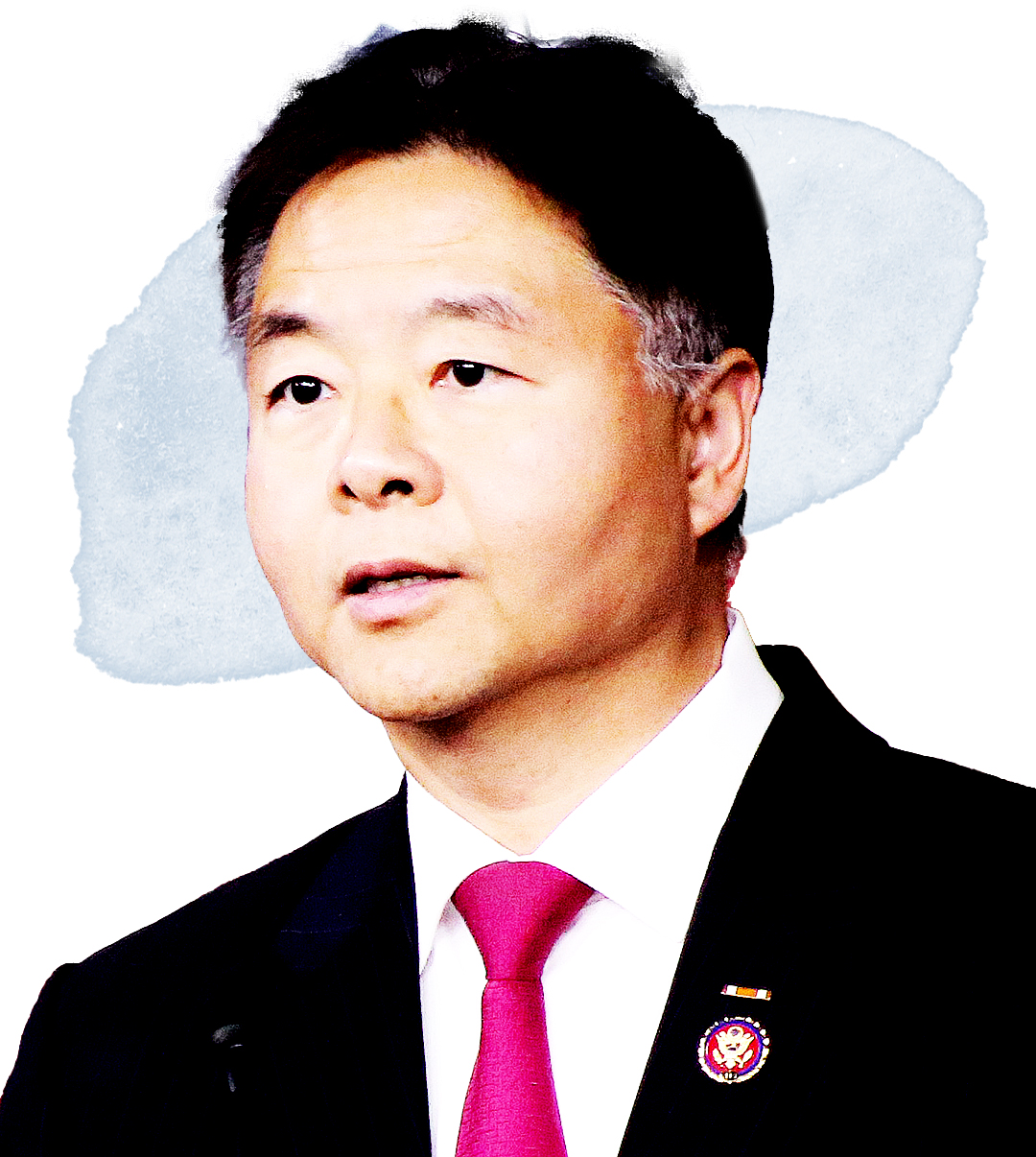Representative Ted Lieu made history this year when, in January, he introduced the first-ever piece of federal legislation written by AI. Using ChatGPT, he prompted the technology to write a comprehensive congressional resolution in his own style and voice, expressing support for Congress to regulate AI. Out came a resolution that he didn’t even need to edit. “AI already has reshaped the world in the same way that the steam engine reshaped society,” the California Democrat says over Congress’s August recess. “But with the new advancements in AI, it’s going to become a supersonic jet engine in a few years, with a personality, and we need to be prepared for that.”
Lieu, 54, would know: he’s one of just three out of 535 members of Congress with a computer-science degree. He says regulating AI is one of his top priorities as a policymaker, but doing so requires Congress to fully grasp the topic. That’s why he has been pushing (along with Representative Anna Eshoo) for the creation of a bipartisan commission of AI experts that would study advancements in AI and propose new recommendations for how to regulate it. He also recently co-introduced bipartisan legislation to prevent AI from ever launching a nuclear weapon by itself—no matter how advanced AI gets in the future—as well as new guardrails on the use of facial-recognition technology. “We’re still in the early stages,” Lieu says, “but that doesn’t mean we can’t legislate on certain discrete problems.”
When asked if he’s worried that more regulation in the U.S. will limit the nation’s ability to compete with foreign companies—particularly in China—Lieu said policymakers need to be careful. “For regulations that would harm innovation—if other countries aren’t doing it—I don’t think we should do those regulations unless we actually have to.”
But Lieu doesn’t see the U.S. as playing catch-up on regulating AI compared with other countries—not even with the European Union, which this summer saw its Parliament pass what could be the world’s first comprehensive legal framework for AI if implemented. “Based on briefings I attended, the U.S. is ahead of other countries in generative AI,” he says. “To even do generative AI at a large scale, you need an incredible amount of resources. ChatGPT essentially strings together 25,000 Nvidia chips. The power they use is so massive. Not a lot of countries or companies have this capability. We need to make sure the United States remains ahead, and so our regulations need to encourage innovation and at the same time prevent harms that can happen from generative AI.”
- Cybersecurity Experts Are Sounding the Alarm on DOGE
- Meet the 2025 Women of the Year
- The Harsh Truth About Disability Inclusion
- Why Do More Young Adults Have Cancer?
- Colman Domingo Leads With Radical Love
- How to Get Better at Doing Things Alone
- Michelle Zauner Stares Down the Darkness





